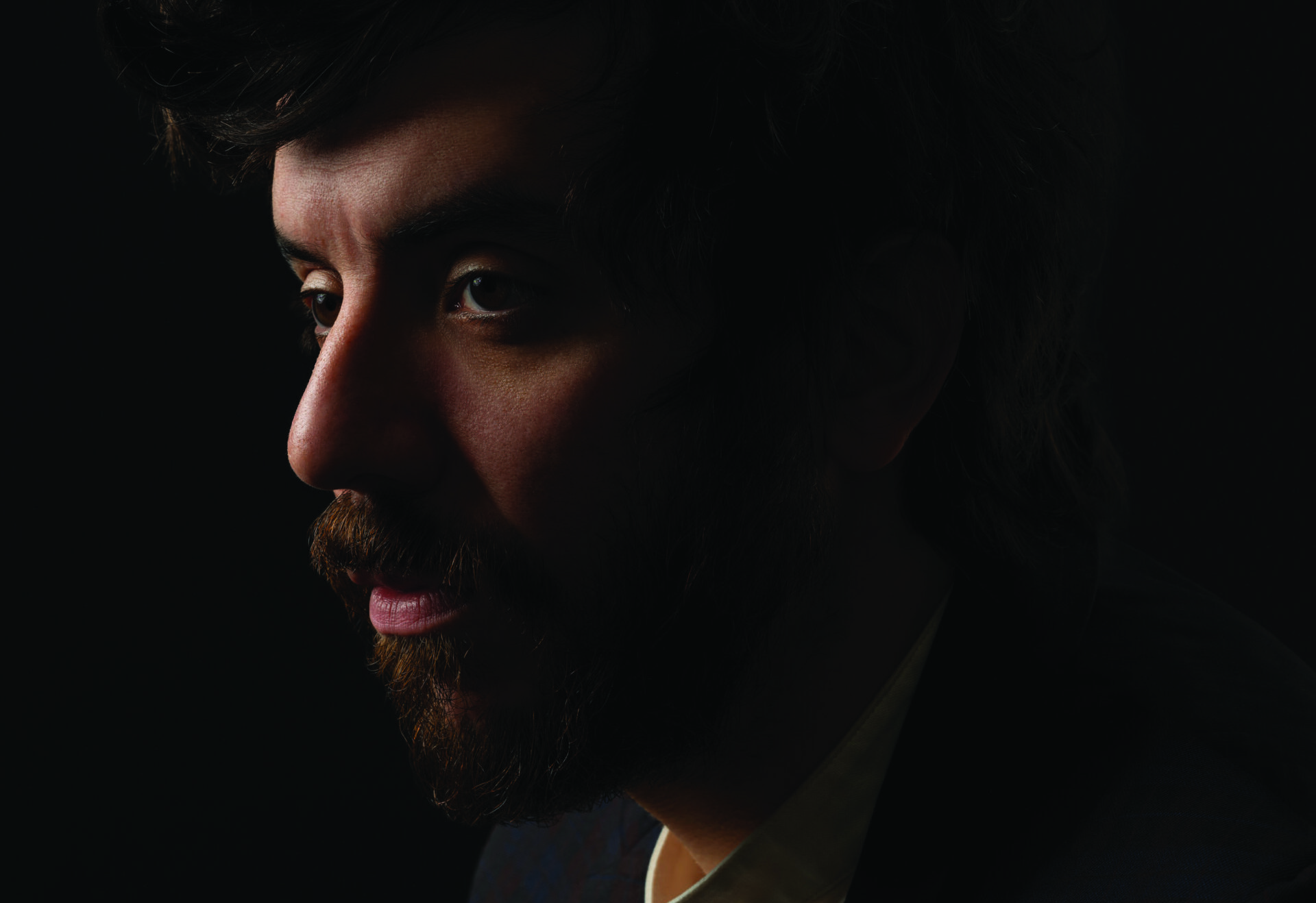The way Kaveh Akbar MFA ’15 remembers things, he made his way into Butler’s MFA in Creative Writing program by the skin of his teeth. English Professor Andy Levy, who was Director of the program at the time, and Professor of English Chris Forhan each recall the situation somewhat differently.
“I was a really bad undergrad,” Akbar says. “I barely went to any classes and did the bare minimum in the classes that I went to, so had no real recommenders. I sent my application to Butler, and I remember having to go to Indy and talk to a couple of the professors—Chris Forhan and Andy Levy—who were pretty skeptical. They liked the poetry sample that I sent in, but the rest of the application was just a mess.”
Levy’s perspective tells a different story.
“Kaveh’s talent and maturity as an artist were obvious from the start,” Levy says. “It was also clear that he had some struggles in his immediate past that impacted his application … but he didn’t have to talk us into anything. We talked as much about whether this was a good place for him to advance as a writer and a person, and I’m not sure whether we were taking a chance on him or he on us. But he never let us down,
and hopefully we came through for him.”
Forhan remembers Akbar’s application struck him as “oddly contradictory,” but he couldn’t ignore his immense promise.
“His writing sample was strong, and he said smart things about poetry, so part of me couldn’t wait to have Kaveh be a member of our community. However, his undergraduate transcript from Purdue was waving a big red flag,” Forhan says. “Particularly strange to me was that he had earned very low grades in his poetry workshops. But the most important thing I remember is how immediately engaging Kaveh was personally, and how rare a mind he had.”
While the details of Akbar’s first impressions are up for debate, what followed speaks for itself.
Akbar finished 2024 as a finalist for the National Book Award for his first novel, Martyr!, which became a New York Times bestseller. He then received a Guggenheim Fellowship for Creative Arts, which provides recipients with as much as a year’s
worth of funding to pursue creative projects.
Since graduating from Butler, he also has published two books of poetry, Calling a Wolf a Wolf and Pilgrim Bell, earned his doctorate at Florida State University, and taught for five years at Purdue University, his undergraduate alma mater. He is now Associate Professor and Director of the Undergraduate English and Creative Writing major at the University of Iowa.
Most importantly, though, he got sober. He wrote about his addiction in the poetry chapbook Portrait of the Alcoholic.
“It turned out being a writer is a lot easier without one lobe of your brain tied beyond your back,” Akbar says. “Because I got sober, I was suddenly permeable to what I was being taught in classes and I was suddenly able to apply it.”
At Butler, he started and ran Divedapper, a website featuring interviews with major voices in contemporary poetry. Akbar says the project “became an education of its own” for him, and he began using the things he learned in class.
He remembers watching the pilot episode of Battlestar Galactica three times in a row in Dan Barden’s Story Structure class and “feeling genuinely illuminated and inspired by it.”
“He was the only student who was enthusiastic about multiple viewings of the same first episode, which explains—to me, anyway—how he became such an accomplished novelist,” Barden says. “It’s all there in that first episode.”
In Forhan’s class, he memorized Robert Hayden’s poem, Those Winter Sundays. He learned “granularity—the idea that every syllable has its place and the idea that grammar matters deeply.”
Reflecting on his Poetry Professor Alessandra Lynch, Akbar says she was “full of wonder and enthusiasm and bewilderment at what poetry can hold,” something he has resolved to carry into his writing.
Akbar developed a stellar reputation at Butler as a poet; to this day, he labels himself “poet” on his income-tax form. But he never wrote much fiction—that is, until he and novelist Tommy Orange started trading pages of their writing every Friday.
Orange said the poems Akbar sent gradually “got prose-ier and prose-ier,” and before long, Akbar had written Martyr! (Orange’s work became the bestselling novel Wandering Stars.)
Pulitzer Prize-winner Junot Diaz, writing in The New York Times, calls Martyr! “a riveting character study and piercing family saga” and says that “what Akbar pulls off in Martyr! Is nothing short of miraculous.”
Now, a year-plus later, Akbar is in no hurry to create another miracle.
“I have a good job and we live pretty simply, so there’s no ticking clock,” he says. “The literary marketplace is robust enough without me rushing work into it. I certainly feel like I have more writing in me, but I would never be so hubristic to say that something that hasn’t been written yet and it isn’t scheduled for publication yet is absolutely going to be in the world.”


